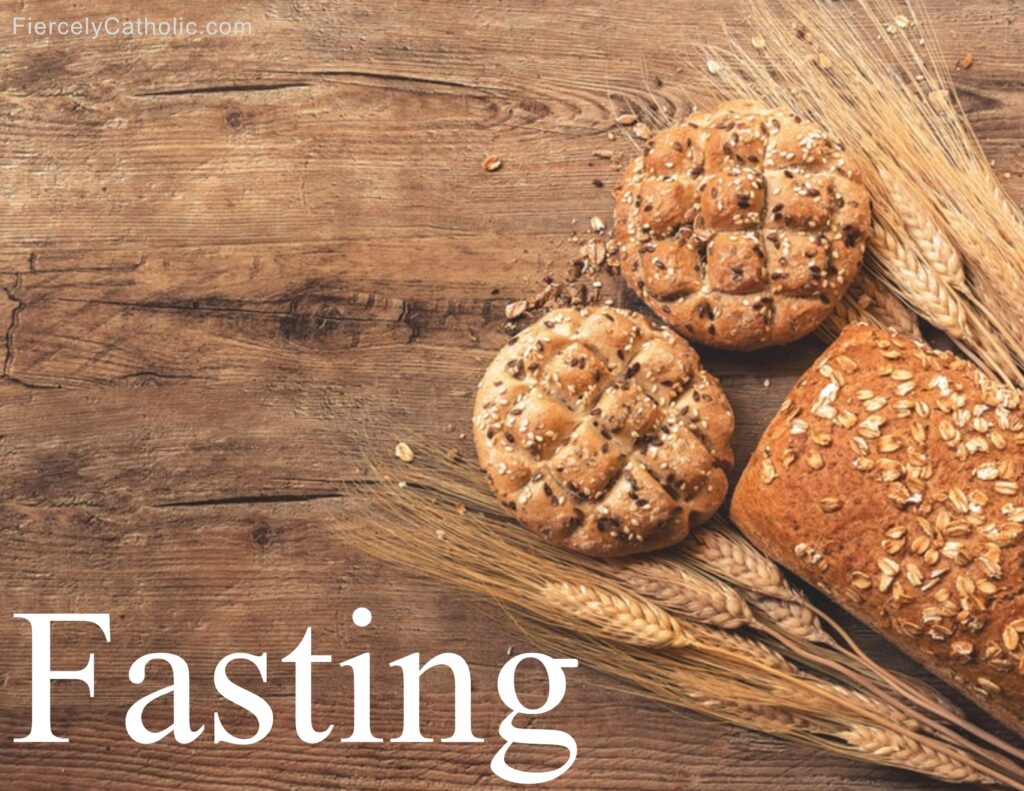
Fasting from food, comfort, or some other pleasure of the senses is a fundamental and powerful part of practicing the Catholic faith.
Catholics fast from good things to show that they are not controlled by them. By doing this, they can more easily resist things that are evil.
Fasting also fulfills God’s desire for people to participate in the salvation of souls by allowing them to offer up their own sacrifices in reparation for sin.
Although the Catholic Church requires fasting on only two days during the year, Ash Wednesday and Good Friday, Catholics may fast more often.
On those days one main meal which is reduced in size and two even smaller meals that combined are less than half of a normal meal are allowed. Eating between meals is not permitted.
Jesus and his disciples fasted:
Then the disciples of John came to him, saying, “Why do we and the Pharisees fast, but your disciples do not fast?” And Jesus said to them, “Can the wedding guests mourn as long as the bridegroom is with them? The days will come, when the bridegroom is taken away from them, and then they will fast.”
Matthew 9: 14-15
Fasting allows practice of the virtue of temperance:
Our culture tells us to fill ourselves:
Finding true freedom and breaking free from false gods:
Penitential fasting is obviously something very different from a therapeutic diet, but in its own way it can be considered therapy for the soul. In fact practiced as a sign of conversion, it helps one in the interior effort of listening to God. Fasting is to reaffirm to oneself what Jesus answered Satan when he tempted him at the end of his 40 days of fasting in the wilderness: “Man shall not live by bread alone but by every word that proceeds from the mouth of God.”
Pope John Paul II, Angelus Address, March 10, 1996
Catholics fast for good reasons:
Jesus showed when to fast and when to feast:
Jesus’ call to conversion and penance, like that of the prophets before Him, does not aim first at outward works, “sackcloth and ashes,” fasting and mortification, but at the conversion of the heart, interior conversion. Without this, such penances remain sterile and false; however, interior conversion urges expression in visible signs, gestures and works of penance.
Catechism of the Catholic Church 1430
Fasting has particular significance during Lent:
Being aware of our vulnerability and dependence of God:
The Truth, Goodness, and Beauty of the Catholic Church
Our hearts were made by God for Him:
Share this page with friends and family to start a conversation about your faith.
Don’t miss a post. Learn more about the Catholic Church and strengthen your Catholic faith.
Find more Fiercely Catholic video issues here.
Subscribe here.


